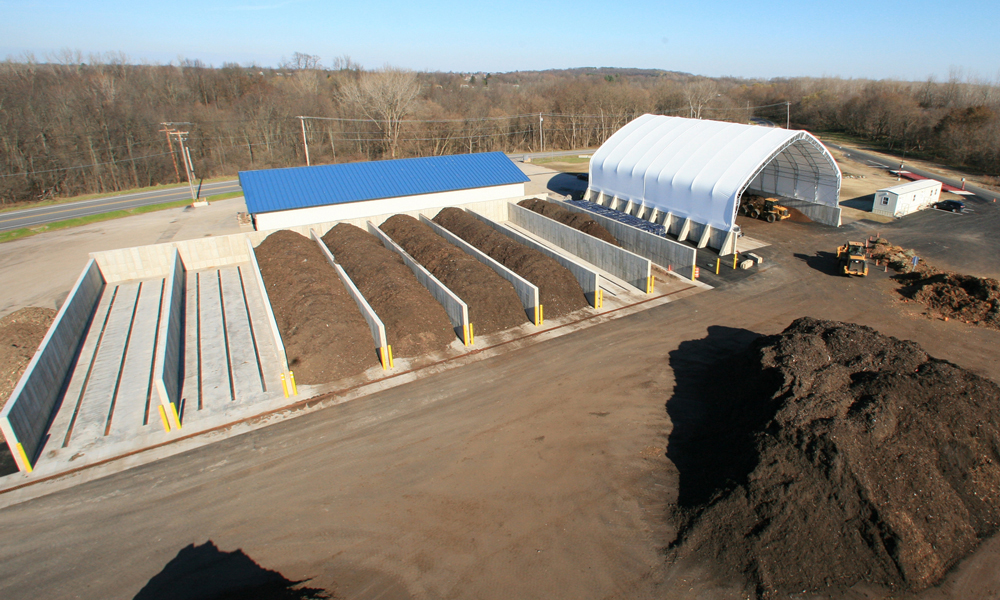Support the Future of Compost
CREF plans to update and expand the Test Methods for the Examination of Composting and Compost (TMECC)

What is TMECC?
The Test Methods for the Examination of Composting and Compost (TMECC) is a comprehensive laboratory manual that provides detailed protocols for the composting industry to evaluate the physical, chemical, and biological properties of composting feedstocks, materials in process, and compost products.
TMECC protocols maintain process control, verify product attributes, assure worker safety, and avoid degradation of the environment in and around the composting facility.
Universal standardized methods to characterize compost are needed by compost producers, state regulatory and permitting agencies, compost product marketing specialists, state and commercial testing laboratories, agriculturalists, horticulturalists, landscapers, landscape architects, civil engineers, researchers on climate change and many more.
What is in the TMECC?
Chapter 1 – Introduction
Overview of composting process and technology groups
Chapter 2 – Sample collection and laboratory preparation
Compost sampling, shipping, chain of custody, laboratory sample storage and preparation
Chapter 3 – Physical Examination
Air capacity, ash, bulk density, wettability, manmade contamination, total solids, moisture, water holding
Chapter 4 – Chemical Properties
Macro and micronutrients, heavy metals, carbon, CEC, EC, pH, digestion techniques, spectrometry, ICP
Chapter 5 – Organic and Biological Properties
Indicator ratios, enzymes, biological assays, odor, organic matter, respirometry, weed seeds
Chapter 6 – Synthetic Organic Compounds
Lab testing for herbicides, pesticides, VOCs
Chapter 7 – Pathogens
Coliforms, salmonella, E. coli, parasitic helminths, viruses
Why is this important to so many different groups?
Laboratories:
- The TMECC offers laboratories repeatable methods that are beneficial for standardizing compost analyses across the country.
- The Compost Analysis Proficiency (CAP) testing program provides laboratories using TMECC methods with an inter-laboratory quality analysis / quality control program.
- CAP provides data to measure the accuracy and precision of the TMECC analytical methods
- The accuracy and repeatability of TMECC methods in STA laboratories is important in real world scenarios where the usage of compost by an end user is dictated by the parameters in the laboratory report.
Compost Manufacturers:
The use of standard methods and protocols for sampling, laboratory analysis, reporting, and interpretation of test results will promote production and marketing of quality composts that meet a core set of analytical standards.
Compost Users:
- Universal methods allow for apples-to-apples comparison of important agronomic factors like pH and orangic matter.
- Standards for lab analyses like inert material measurement and bioassays are unique to the TMECC and provide quality measures and ensure product safety.
- The TMECC defines measures of agronomic, physical and other characteristics on which compost markets are built, like what a farmer would look for when purchasing compost, or the data which a landscaper would need to determine how much compost to add.
Regulatory Agencies:
- Numerous agencies use measures of stability and maturity to assure compost is made to ahigh standard and is safe for consumer use.
- For example, the California Air Resources Board references methods of measurement in the TMECC to assure regulatory compliance when protecting air quality.
- Without universal test methods and standards, non-compost products could inappropriately be marketed as compost, polluting markets and confusing consumers.
Designers:
- Landscape architects and engineers need a common language to specify compost uses, such as improving soils and managing stormwater. that language is provided by the TMECC, which serves as the basis for the Seal of Testing Assurance program.
- These methods provide universal standards designers can rely on.
- These methods provide objective, science-based interpretation of many items, like determining whether a compost is stable or unstable.
The TMECC needs attention and care because…
After 20 years of being an important resource for compost professionals, industry and governments, universities, and laboratories around the world, it is time to update the TMECC due to significant changes in technology and evolving scientific understanding.
- New methods - Persistent herbicides, PFAS
- Major updates - Film plastics, man-made inerts, nutrient protocols, respiration
- Minor updates - technology updates, new equipment, removing materials that are no longer available
- Update figures, tables and charts
- Format digitally
- Round-robin testing of all new and updated methods to validate method performance across laboratories
What are the Update Plans?
Resources Required:
- Project Manager - Manages revision timeline and coordinates activities
- Content Manager - Manage the TMECC content updates
- Grant Writer - Identifies and applies for funding for major updates and evaluation
- Research Scientists - Write and update methods
- Laboratories for round robin testing
Phase I:
- Hire a project and content manager to coordinate all aspects of the revision
a. Establish a checklist to standardize the review of methods
b. Set a completion timeline for each subject chapter
c. Identify subject-area experts to assist in peer-reviewing the updated TMECC protocols
- Address current protocols that are used in the STA Program, including plant nutrients, moisture content, organic matter, pH, soluble salts, particle size, stability, maturity, pathogens, and trace metals
- Hire a grant writer to find and apply for grants to fund phase II TMECC revisions
Phase II:
- Major and minor revisions to all other TMECC methods
- Funding for the development of new methods
- Development of a new digital and print TMECC format
- Round-robin testing of all new and updated methods to validate method performance across laboratories
How Can YOU Help?
DONATE TODAY!
Why Donate? Because the TMECC is an important document for the composting industry, and it needs to be updated. TMECC is the future of compost.

Click here to purchase the current version of TMECC.